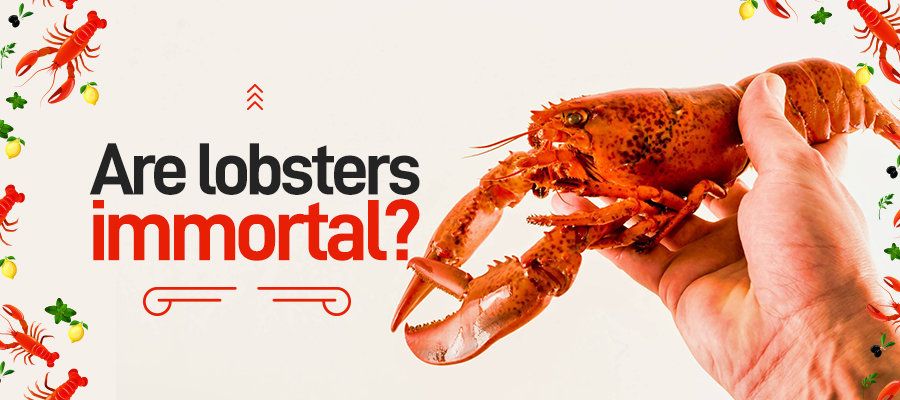
We all know lobsters from movies, books, and restaurant menus: they are big and delicious creatures. There’s a strange fact, or myth, that you may have heard by word of mouth that these animals do not age and are immortal.
Animals that live in the deep seas are more prone to be mysterious creatures, so these kinds of myths may not come as a surprise.
Lobsters are not immortal. The reason why this myth has become so popular is that lobsters hardly age! The normal cycle of life for almost all living beings is to become slower, weaker, and infertile with age, but this isn’t the case for lobsters; they grow bigger, stronger, and are more fertile in later stages of life! The process that explains this fact is called telomerase.

This process consists of repairing telomeres, which are little endings of chromosomes. As we grow older, telomeres become shorter, which makes it more difficult for the genetic material to be read correctly. The telomerase happens only during embryonic stages for most animals, however, for lobsters, telomerase never ends. In simpler words: lobsters do not age!
Another fact that helps lobsters to live longer and have longer life spams is the water temperature. When lobsters are in warm water, for example, the Caribbean, they have faster metabolisms. However, when they’re in cold water, their metabolisms are slower.

A great example of this is The American Lobster, which can live to at least 100 years! The Caribbean Spiny Lobster, on the other hand, doesn’t even make it to 20 years. This is because the American lobster lives in the cold Atlantic waters off the northern part of the Eastern Seaborn, which helps slow down its metabolism.
This allows it to age slower and lives longer, as long as it escapes predators and diseases.
In conclusion, lobsters don’t live forever. They do can live many years compared to other animals, but immortality is still something we can witness in books and movies.
